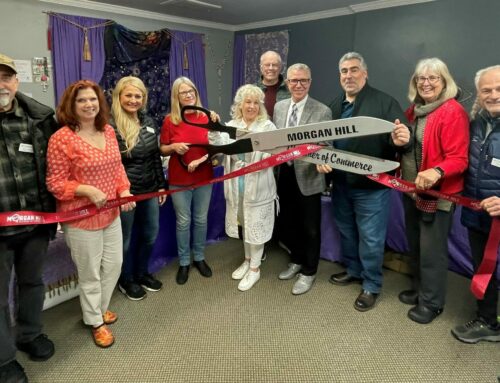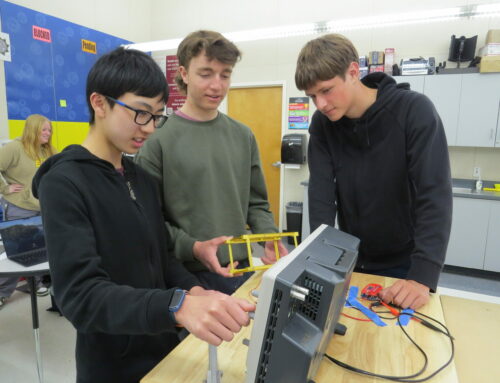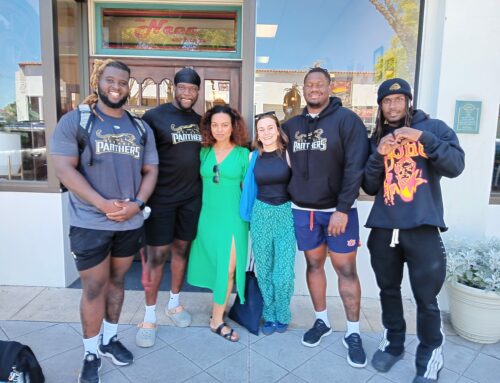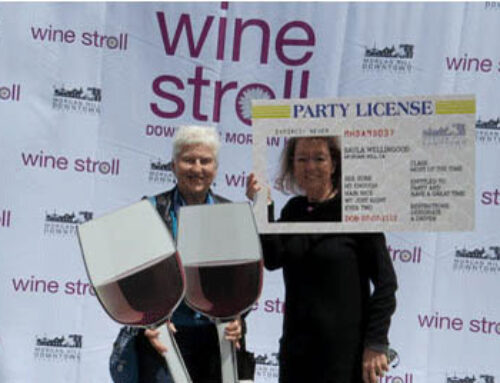Bill Monning elected the Senate Majority Leader
Published in the Jan. 21 – Feb. 3, 2015 issue of Morgan Hill Life
By Staff Report
Bill Monning represents Morgan Hill in the California State Senate’s District 17. Before he was elected in 2012, he worked as our assembly member for four years. Last month, he was selected as the Majority Leader of the senate.
Morgan Hill Life recently asked Monning about his role as Morgan Hill’s elected state senator and what issues are important to him in 2015.
Congratulations on your new position as Majority Leader in the state senate. What goals do you have in your new position?
It is an honor to have been selected to serve as the Senate Majority Leader. The duties of the position include working closely with Senate President pro Tempore Kevin de Leon, his leadership team and my colleagues to achieve a timely and balanced state budget that can support California’s on-going economic recovery. Additionally, I want to work to establish clear and respectful lines of communication between the pro Tem and all members, including minority party members, and members of the Assembly.
What goals do you have for the South Valley region and specifically the community of Morgan Hill?
Much of our work in the state Legislature is focused on statewide issues that impact local governments and all Californians, and specific to a region or community. However, as I have done in the past, I plan to continue to fight for quality K-14 education and higher education opportunities in Morgan Hill and the region. Additionally, I will continue to work with local law enforcement in an effort to maximize the benefits of realignment, as well as to assure that the supplemental state resources directed to local law enforcement remain steady and available.
The proposed high-speed rail system for California, if it is built, will have a big impact on the South Valley and Morgan Hill, running through its downtown district. What are your views on high-speed rail for California and why do you favor/not favor the transportation system?
Along with a majority of California voters, I supported the high speed rail (HSR) bond measure on the 2008 ballot. Many people are not aware that some of those bond revenues are already being used to convert existing CalTrains, which serve Morgan Hill and Gilroy, from diesel to electric engines.
In addition, it is expected that the business and tourist transportation provided by HSR will also provide an economic benefit to the communities on the rail line. It is for this reason that many regional tourism advocates and businesses have indicated their support for the HSR. While I believe there can be important regional and statewide benefits from a HSR system, I am extremely cognizant of legitimate concerns that Morgan Hill and other South County residents have about the impact and path of HSR. Because of these concerns, I have long supported a transparent and open HSR public planning process in order for communities directly impacted to express their opinions, be understood, and have their issues addressed.
Education is an important issue for you. The state is moving toward giving school districts more local control of their student learning programs. How do you see this in terms of possible flexibility for districts and benefits to students?
In the 2013-14 Budget, I supported the implementation of the Local Control Funding Formula (LCFF), which combined a majority of the categorical funding programs and provides individual school districts with a base funding amount. The goal of LCFF is to keep program funding level decisions at the local level and it received broad support from education stakeholders. It is important to place decision-making authority in the hands of locally elected school boards and school districts, and LCFF does exactly this, as well as allow the needs of students to be met in a quick, efficient manner.
I have enjoyed a close working relationship with parents, school administrators, teachers and classified employees in Morgan Hill and the region. I am committed to learn from those directly engaged in the business of educating California students and I regularly hold “education focus group” meetings throughout my district. These meetings are extremely informative and Morgan Hill is fortunate to have a wide array of dedicated educators who are devoted to providing our children with a quality education.
The environment is another issue you care deeply about. What goals to protect the environment might you have for 2015?
You are correct that since first being elected to the Assembly in 2008, I have been a strong advocate for protecting and restoring California’s environment. In 2015, we need to continue to work to address the impacts of climate change, which include encouraging grassroots conservation efforts, reuse and recycling.
California needs to continue to lead by example in the reduction of carbon emissions and Gov. Jerry Brown has demonstrated his commitment to this by proposing that petroleum use be reduced by 50 percent in 15 years. In addition, I am a proud co-author of Senator Pavley’s Senate Bill 32 which would require the State Air Resource Board to approve a statewide greenhouse gas emission limit that is equivalent to 80 percent below the 1990 level to be achieved by 2050.
In addition, we need to address the needs of our state parks, as they are crucial to tourism and the regional economy.
While largely a federal issue, the flooding of Llagas Creek is an important issue that needs to be tackled and I have been an advocate for adequate federal funding support for the engineering projects needed to protect residents and businesses from the adverse impacts of future floods.
One concern many citizens have about the leadership in Sacramento is the extreme partisan division which prevents a lot of worthwhile results from being achieved. What do you think might be done to reduce this partisan friction?
The perception of “extreme partisan division” is not an accurate description of the bipartisan and collaborative work we do in Sacramento. While this may be an appropriate description about the gridlock and dysfunction that has virtually crippled the United States Congress in Washington DC, it does not recognize the bipartisan achievements made here at the state level.
A good example of bipartisan cooperation in Sacramento was the negotiated agreement to place the recent water bond measure on the November 2014 ballot. The negotiations included, and the bond measure was eventually supported by, agricultural, environmental and business leaders. California voters, in turn, supported the water bond by an overwhelming majority. This achievement took both parties working together, with Gov. Brown’s leadership, to achieve this solution.
While we will always have differences of opinions and principles on some of the state’s toughest issues, I enjoy the collegiality I share with those on the other side of the aisle and have enjoyed strong bipartisan support on a majority of the bills I have carried in the legislature.
Sen. William W. Monning was elected in November of 2012 to represent the 17th Senate District, which includes all of San Luis Obispo and Santa Cruz Counties and portions of Monterey and Santa Clara Counties. Prior to that, he represented the 27th Assembly District from 2008 to 2012, which included portions of Monterey, Santa Cruz, and Santa Clara Counties.
Monning is 63. He graduated from the University of California, Berkeley and the University of San Francisco
Santa Clara County Office, 7800 Arroyo Circle, Suite A, Gilroy, CA 95020
Phone: (408) 847-6101
Capitol Office State Capitol, Room 313 Sacramento, CA 95814
Phone: (916) 651-4017
email: www.sd17.senate.ca.gov







